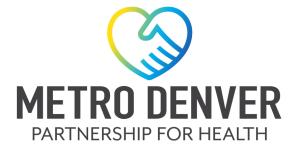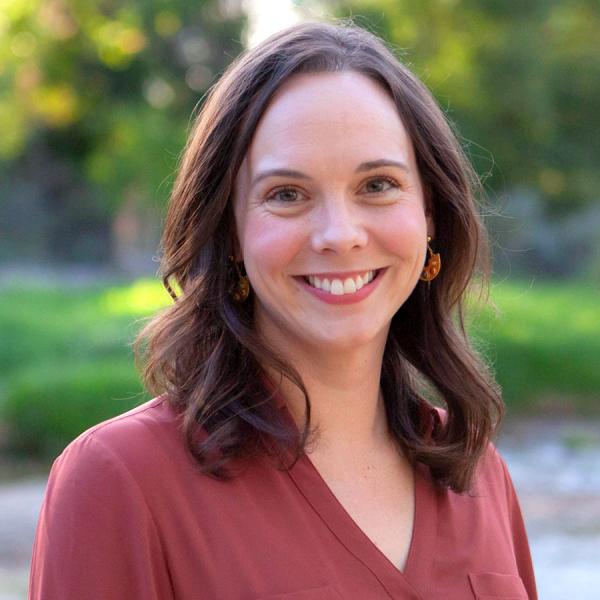MDPH is committed to implementing these plans in a transparent, accountable, and responsive manner, addressing the needs of partners and the wider community. Thanks to the Colorado Department of Public Health and Environment’s Cancer, Cardiovascular and Pulmonary Disease Grant Program, MDPH has funding from July 2023 to June 2026 to begin building a connected community of care in the metro Denver area. During this time, CHI is actively supporting MDPH in creating a network of community and clinical partners that have:
- Shared best practices to assess people for diabetes, cardiovascular disease, and related risk factors, such as food insecurity
- Agreed-upon practices to refer people to resources and services offered by organizations in the network
- Formal agreements to share information appropriately to connect people to resources and services offered by organizations in the network
- Long-term plans to expand and maintain the network of community and clinical partners working together
CHI will guide the development of this network by facilitating regular workgroup meetings with partners, providing training and technical assistance, and leading evaluation activities to improve screening and referral practices, improve people’s connections to available services, and enhance community engagement and technology practices.
MDPH’s goal is to expand the network to include additional community and clinical partners that address other health and health-related social needs. CHI will share updates on the network's progress in our newsletter (coming soon!) If you’re interested in learning more or getting involved, jump to the Join Us section below.
Implementation Plan
The implementation plan describes the core functions of a connected community of care, which include:
- Screening and Assessment — Identifies the health and social goals of an individual or family
- Integrated Community Resource Inventory — Refers individuals to a comprehensive directory of resources and services available in the community
- Referrals — Connect someone to another resource, service, or point of care to address their needs
- Whole-Person Care Coordination — Supports individuals and families in accessing and engaging in services to achieve overall well-being
- Community Health Analytics - Assess the overall health status, needs, and gaps in care or services across communities
The plan focuses on commitments and activities to build connections across partners, not on the internal implementation of specific programs within any single partner organization. And it outlines equity-driven guidance and best practices for information governance, system implementation, technology, and workforce adoption and engagement.
Community Engagement Plan
The community engagement plan describes commitments and activities for partners to engage with community members and share decision-making power with community leadership to ensure the connected community of care is equity centered. The commitments outlined in the plan include:
- Core Principles for Authentic Community Engagement
- Strengthened Partnership and Alliances
- Expanded Knowledge
- Improved Programs, Policies, and Health
- Thriving Communities
Accountability Plan
The accountability plan describes commitments and activities to evaluate the planning and implementation of a connected community of care. It outlines the resources, activities, outputs, and measurable impacts of this work to drive us toward achieving a more connected community of care. The plan helps partners hold themselves accountable to shared goals and community-driven priorities.
Sustainability Plan
The sustainability plan describes categories of investment needed to develop and maintain a connected community of care. The commitments and activities highlight opportunities for partners to combine funding streams to better support whole-person care for individuals and families and describe how to make intentional investments in community-based resource capacity.
“You come to a point when you’re tired of being tired…When you have the right support, it’s not hard to get better.” — Katie, community member



